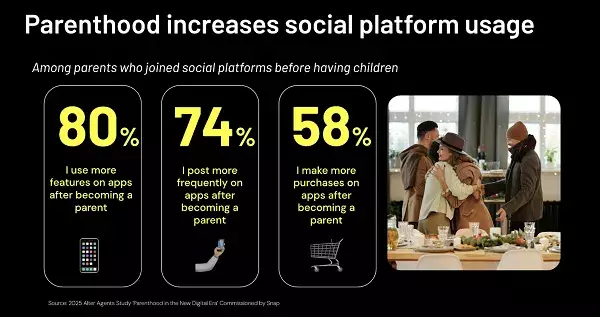Becoming a parent profoundly reshapes an individual’s social media habits, revealing not just a shift in usage patterns but also emphasizing the evolving role of digital platforms in modern parenting. Contrary to the common assumption that parenthood diminishes online activity due to increased responsibilities and time constraints, data suggests a nuanced reality: many parents actually deepen their engagement on social media during this transformative phase of life.
This paradox arises because, in the early stages of parenthood, individuals often find themselves spending more time at home, navigating the chaos of sleepless nights, feeding routines, and developmental milestones. These moments, though challenging, are also ripe for social sharing—baby photos, milestone videos, and parenting tips become commonplace content. Updated social media profiles become digital scrapbooks, and groups focused on parenting communities provide comfort, advice, and camaraderie.
Moreover, this phenomenon underscores how digital literacy, shaped by growing up in social media-saturated environments, equips parents with the skills and comfort to leverage these platforms more effectively. Far from social media being a distraction or a time sink, it increasingly serves as an integral tool for connection, information, and even shopping—turning parenthood into a more intertwined digital experience.
The Role of Social Media in the Modern Parenting Journey
Recent studies, including one conducted by Snapchat in collaboration with Havas Media Network, reveal that 59% of parents globally report increased social media activity after having children. They are not just passively consuming content but actively engaging—posting updates, joining communities, participating in live discussions, and even making purchases directly on these platforms. This behavior highlights a significant societal shift: social media acts as a hub of support and information rather than merely a source of entertainment.
The impact of parenthood on social media activity is especially pronounced during specific times: holidays, birthdays, summer vacations, and increasingly during Black Friday—traditionally a retail extravaganza. The data suggests that parents see shopping on social platforms as a collaborative activity, involving their children in exploring products and making decisions together. Such co-discovery sessions transform shopping from a solitary chore into a shared family experience, with social media serving as both an inspiration and a decision-making guide.
What is particularly compelling is how children influence their parents’ online behaviors. Over 86% of parents say they shop online with their children, and nearly two-thirds acknowledge that social media exposure affects their purchasing choices. Kids are not just passive recipients but active participants in the digital shopping journey, impacting decisions across various categories—from toys and clothing to electronics and educational materials.
Implications for Marketers and Brands
This evolving landscape presents big opportunities for brands targeting this demographic. Recognizing that parents are more engaged on social media during after-school hours, weekends, and shopping seasons enables marketers to craft tailored campaigns that resonate at the optimal moments of parent-child interaction. Timing is crucial: ads shown during these high-engagement periods can boost influence, especially as parents seek curated content and product recommendations that align with family needs.
Furthermore, understanding the collaborative nature of modern shopping means brands should position their messaging to appeal to both parent and child perspectives. Content that promotes shared experiences, family-friendly products, or interactive features could command greater attention. The shift toward co-discovery signifies that marketing strategies must adapt to a more integrated approach—where digital touchpoints foster trust, excitement, and validation within family units.
As digital ecosystems become intertwined with daily parenting routines, the opportunities to influence purchase decisions increase exponentially. Brands that recognize the importance of timing, relevance, and shared discovery can establish a lasting connection with a demographic that is both increasingly present on social platforms and highly influential within their families.
In wrapping these insights into a broader perspective, it’s clear that parenthood is not merely a private milestone but a social phenomenon reshaping how consumers interact, learn, and shop in the digital age. For marketers, understanding and embracing this transformation isn’t just advantageous—it’s essential for meaningful engagement in today’s connected world.

